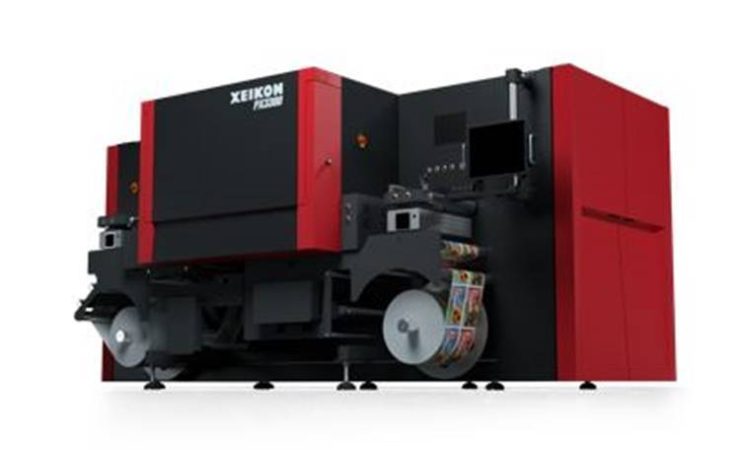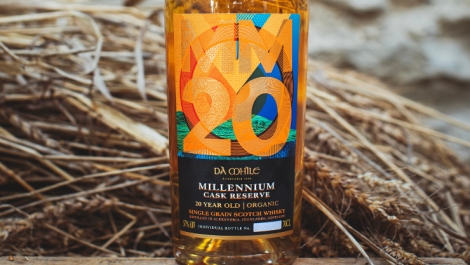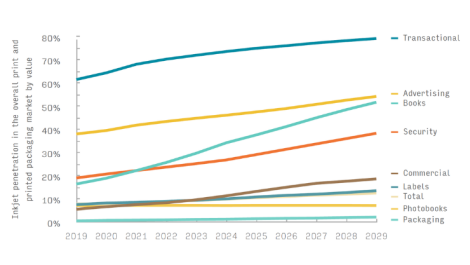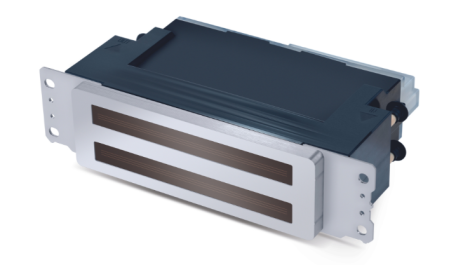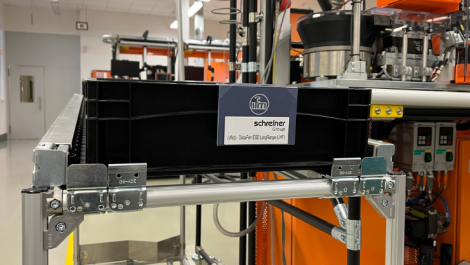Xeikon has launched version 2.0 of its Panther UV inkjet technology with two new label presses, Xeikon PX3300 and Xeikon PX2200.
The new presses, first detailed here, are replacing the company’s existingPX3000 and PX2000 models. The new models feature advancements in two areas – applications and building blocks – to digitalise print manufacturing.
Filip Weymans, vice president marketing, stated, ‘We are defining a pathway to full digitisation of print production and manufacturing. Responsiveness has become key for any business and can only be achieved effectively by digitalising all print manufacturing processes, and not just printing. The foundation for a digitalised environment lies with collecting data in a digital manner. The data volume, captured in real time, creates the information that is required by label converters to make fact-based decisions. Another aspect is the interfacing connections in production between machines and operators, helping to transfer job information between the different production processes or drawing the attention of operators when it is really required. The cloud-connectivity, machine-machine and man-machine interfaces of our UV inkjet presses will enable label printers to take operational excellence to the highest levels. They offer great potential to maximise OEE, increase sustainability and make an operation robust for any future challenge.’
The Panther 2.0 series offers new opportunities for label printers to expand their applications portfolio. Xeikon’s substrate handling technology features a new splice table, web detection capability and cooled roller at the curing section. This makes it possible to print high-quality labels on a wider choice of substrates, including clear-on-clear facestock, which requires a high-quality opaque white to make the design stand out. Both presses can be configured with a fifth print station for white ink and can print on a wide range of self-adhesive media in addition to clear-on-clear, including coated paper, vinyl, PP, PE, PET, and metallised.
The Xeikon PX2200 and PX3300 presses utilise the advantages of PantherCure UV inks. The Panther DuraCure UV technology produces high-gloss effects and stands out across the widest colour gamut while delivering exceptional long-term durability for multiple applications such as industrial, chemical and household labels, as well as high-end labels for the premium beer, spirit, beverage and health & beauty market sectors.
Driven by Xeikon’s X-800 digital front-end (DFE), the new Panther UV inkjet presses offer superior and consistent print quality in combination with claimed ‘industry leading productivity’. Cloud connectivity is achieved through the X-800, providing access to both machine data and job data, e.g. ink consumption, printing time, etc.
The latest generation of Xeikon’s X-800 enables applications on the Panther presses, such as haptic printing. This tactile layer of white delivers embellishment effects inline with full colour printing for designing labels with enhanced tactility and luxury feel. Also for versioning, starting from black and white and going to colour numbering and to the most complex full colour variable data application through Xeikon’s new Vari-One option.
With the addition of two new presses, the Panther 2.0 series now comprises seven different UV inkjet press. This includes the Xeikon PX30000, available with six (CMYKOV) or eight (CMYKOV+WW) print stations. It will now be accompanied by the 220mm-wide Xeikon PX2200 and the 330mm-wide Xeikon PX3300. A high capacity (HC) model is also available.
Xeikon’s Panther series of presses come equipped with Cloud connection and next-generation HMI to help operators monitor the workflow, avoiding downtime and bottlenecks and allowing changes on the fly to be made. Xeikon’s new interfaces also allow presses to communicate with other equipment such as finishing and embellishment units.
Mr Weymans concluded, ‘Xeikon’s UV inkjet presses can address any request from label converters. This can mean replacing an older UV flexo press to be more effective, being cost competitive within the high-end to medium-run label market, expanding the digital application space of existing liquid toner businesses, or providing entry-level investments that allow any printing company to embark into the digital label space. By being part of Xeikon’s broader label portfolio (press, consumables, workflow, converting, embellishing, services), converters can over time expand their investment in width and colour, or expand their workflow capabilities with ERP or MIS systems. With over 30 years of experience in digital innovation, Xeikon has a deeper understanding that enables them to offer not only the latest innovations and technologies but also a full suite of support services.’

